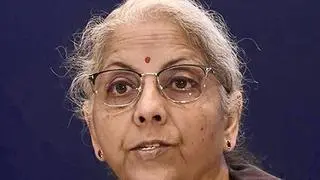“We should steer clear of romanticism and stick with hard facts when we talk of inclusive cities,” said Dieter Mutz, Head, Energy Operations, GIZ.
Addressing the one-day IIMB-GIZ international workshop on ‘Inclusive Sustainable Cities’, hosted at IIMB, Mutz touched upon factors such as security, safety, healthcare, education and employment opportunities, and technology and said the idea of a smart city continued to be tinged with romanticism.
The meet discussed the concept of sustainable and inclusive cities, analysing strategies for sustainability, sharing global experiences and listing local challenges with perspectives from municipalities and city corporations.
Outdated laws “Many of our Acts and regulations are antiquated; we should rewrite them. What we need are modern laws and collaborative individuals who can work with the system. Only then can we build sustainable cities,” observed SK Joshi, Principal Secretary, Telangana.
He said that while cities in India had a plethora of plans, they singularly lacked vision and had failed to take into account ground realities such as slums and poverty.
A Damodaran, Workshop Chair and MHRD Chair Professor of IP Management at IIMB, said, “Why can’t the main city handle its own dirt? That’s because planning agencies seldom take real-life challenges into account.”
Climate change In his opening remarks, Sushil Vachani, Director, IIM Bangalore, said: “In recent years, there has been a better balance in the discourse on how to mitigate the effects of climate change and how to adapt. However, there is a need to develop and scale innovative solutions while tackling challenges be it climate change, migration or poverty.”
Drawing from his experience while co-editing a book on adaptation to climate change, Vachani said, “While I was heartened by the progress made by many countries, I was also struck by the amount of the work that needs to be done.”
South Korea, he explained, stood out for its use of technology in warning of potential disasters such as floods. Singapore, he said, has made great strides in planning to tackle urban flash floods and devising ways to conserve water.
“All these countries are involving civil society in addressing inclusiveness. Hong Kong too learnt from its unfortunate experience with swine flu and has developed coordination between its numerous agencies. China has developed strategies that other countries can learn from. Innovative scalable solutions are the key to create a more inclusive society,” he added.
Papers presented The workshop surveyed ongoing research on sustainability and inclusivity in the context of the cities in developed and emerging countries. The workshop also sought to provide cross-continental perspectives in managing natural resources.
Academics from India, Germany, and the US presented their work. N Baijendra Kumar, Additional Chief Secretary, Chhatisgarh and Chairman of ‘Naya Raipur’, shared their experiences on ‘Sustainable Urban Planning for Cities in New States’.
German example Offering a history of Germany’s buildings energy consumption, Harry Lehmann, Head of Division, Federal Environment Agency, Germany, gave examples of initiatives such as solar architecture towards creating low carbon cities.
“The stakeholders in building low carbon cities in Germany are regional administrators of 16 German cities, federal authorities and municipalities. The real work happens in the municipalities but the trickle-down effect of good laws and codes is invaluable,” he pointed out.
Collaborative projects Jan Beermann, Environmental Policy Research Centre, Germany, spoke of the collaboration between Pune and Bremen, where NGOs from the two cities collaborated and set up DEWATS (decentralised waste water treatment system) plants. “Sadly, the project failed to make impact as it got bogged down by lack of political will.”
On the other hand, the Nashik-Hamburg ‘waste to energy’ project, which is currently in the implementation stage, stood out as an example of effective collaboration and citizen participation. “For large-scale impact, partnerships of this sort depend on legal frameworks and State support,” he added.








Comments
Comments have to be in English, and in full sentences. They cannot be abusive or personal. Please abide by our community guidelines for posting your comments.
We have migrated to a new commenting platform. If you are already a registered user of TheHindu Businessline and logged in, you may continue to engage with our articles. If you do not have an account please register and login to post comments. Users can access their older comments by logging into their accounts on Vuukle.